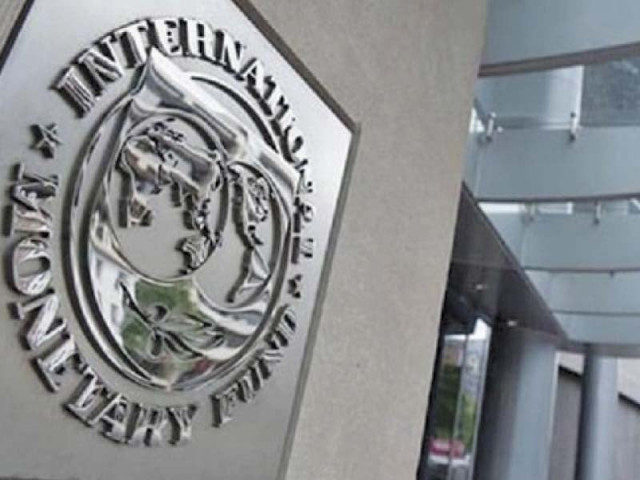Pakistan gets $3b IMF breather
India abstains from voting at board meeting; global lender terms steadfast policy implementation critical

The International Monetary Fund (IMF) on Wednesday approved $3 billion bailout package to save Pakistan from default and put it back on the reforms path – a journey that Islamabad undertook only after friendly countries linked its support with the fund’s deal.
The IMF Executive Board approved a nine-month Stand-by Arrangement (SBA) in the amount of SDR2.25 billion or about $3 billion. The amount is equal to Pakistan’s 111% of the quota.
“The arrangement comes at a challenging economic juncture for Pakistan,” the IMF said in a statement issued after the board meeting.
The board members were very critical about Pakistan’s lack of consistency in reforms and its failure to honour the commitments.
The discussions in the board suggested that it was the last opportunity for the rulers to put its act together, according to sources. They added that India tried to spoil the show and eventually abstained from voting.
It is the 23rd programme that Pakistan signed with the IMF. So far, only one programme (2013-16) could be fully implemented that too on the back of a host of waivers against key condition.
Also read Pakistan receives $1 billion from UAE in reserve support
The IMF did not accept last fiscal year’s disputed 0.3% GDP growth rate. A table released along with the statement showed that the economy contracted by 0.5% in the jus-ended fiscal year. For the ongoing fiscal year, the IMF projected the GDP growth at 2.5% and annualised inflation rate at 25.9%.
The IMF data showed that the unemployment in the last fiscal year peaked to 8.5% from preceding year’s 6.2%. It projected the unemployment rate to slow down to 8% this fiscal year.
Pakistan entered into a new IMF programme only after it could not secure any new financial support package from China, Saudi Arabia, and the United Arab Emirates (UAE). These friendly countries had advised Pakistan to first take the IMF route aimed at staying on course of reforms.
After a dilly-dallying approach that led to the failure of the last $6.5 billion programme in June, Islamabad signed a new staff-level agreement with the IMF for a nine-month SBA.
However, the programme implementation might be challenging due to involvement of three governments during the programme period.
“A difficult external environment, devastating floods, and policy missteps have led to large fiscal and external deficits, rising inflation, and eroded reserve buffers in fiscal year 2022-23,” the IMF said.
The overall budget deficit remained at 7.6% of the GDP in the last fiscal year that the IMF said would remain at 7.5% of the GDP this fiscal year.
Also read: Fitch upgrades Pak credit rating by a notch
The 7.5% projected budget deficit is 1% higher than the target set by the government in the just-approved budget.
The IMF board also approved immediate release of the first tranche of $1.2 billion. The remaining amount of $1.8 billion would be phased over the programme’s duration, subject to two quarterly reviews, it added.
The IMF said that Pakistan’s economic reform programme aimed at supporting immediate efforts to stabilise the economy and guard against shocks, while creating the space for social and development spending to help the people of Pakistan.
It added that steadfast policy implementation would be critical for Pakistan and the success of the programme.
“This will require greater fiscal discipline, a market-determined exchange rate to absorb external pressures, and further progress on reforms related to the energy sector, climate resilience, and the business climate,” the global lender said.
On Wednesday, Pakistan also received $1 billion loan from the UAE, which was also part of the $6 billion financing plan.
A day earlier, Saudi Arabia had disbursed $2 billion, paving the way for the board meeting.
The IMF said that Pakistan’s new SBA-supported programme would provide a policy anchor for addressing domestic and external imbalances and a framework for financial support from multilateral and bilateral partners.
The programme would focus on implementation of the fiscal 2023-24 budget to facilitate Pakistan’s needed fiscal adjustment and ensure debt sustainability, while protecting critical social spending, the IMF added.
The IMF said that the programme would also focus that Pakistan “return to a market-determined exchange rate and proper FX (forex) market functioning to absorb external shocks and eliminate FX shortages”.
It will also ensure an appropriately tight monetary policy aimed at disinflation; and further progress on structural reforms, particularly with regard to energy sector viability, SOE governance, and climate resilience.
To qualify for the SBA, Pakistan had to bring changes in its proposed budget, including introduction of Rs215 billion more taxes that took the total amount of new taxes to Rs438 billion. The government overburdened the salaried class but saved the traders from any additional taxation.
The State Bank of Pakistan (SBP) also withdrew restrictions on imports as part of the IMF conditions and also increased the interest rate by 1% to 22%.

1724319076-0/Untitled-design-(5)1724319076-0-208x130.webp)

















COMMENTS
Comments are moderated and generally will be posted if they are on-topic and not abusive.
For more information, please see our Comments FAQ